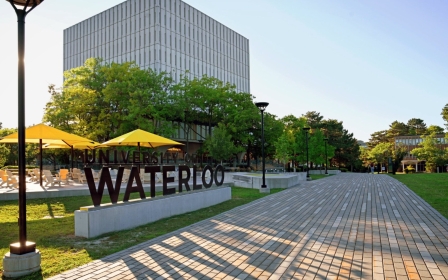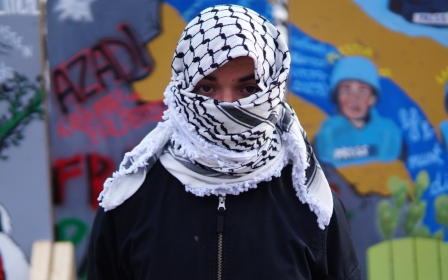Court grants University of Toronto permission to clear Gaza solidarity encampment

A court in Ontario has granted the University of Toronto an injunction to clear the school's Palestine solidarity encampment, known as the "People's Circle for Palestine".
The court order, ruled on 2 July, grants Toronto police the authority to arrest anyone who does not comply with the order which says that all tents must be taken down by 6pm on Wednesday 3 July.
The student protestors, who set up the encampment on 2 May - to urge the university to disclose and divest from Israel - are reportedly allowed to demonstrate but are prevented from camping, erecting structures, blocking entrances to university property, and protesting on campus between 11pm and 7am local time.
Speaking to the media, protestors said they have not yet decided whether or not to comply with the injunction's orders and will regroup before making a final decision.
President of the University of Toronto Meric Gertler says that the court's order "prevents any one group from asserting control of a shared space at the university in order to promote a particular view and deprive others of the freedom to express opposing viewpoints".
New MEE newsletter: Jerusalem Dispatch
Sign up to get the latest insights and analysis on Israel-Palestine, alongside Turkey Unpacked and other MEE newsletters
In a post online, the organisers of the People's Circle for Palestine have called the move a "disgraceful chapter for the institution" and a "shameful attempt to use legal force to brutalize its own students".
Property rights trump freedom of assembly
In the court's decision, judge Markus Koehnen said that the encampment is neither violent nor antisemitic in nature.
According to the court, the ruling in favour of the university stems from the fact that the university, as the owner of the property, has the right to decide how that property is used.
"In our society we have decided that the owner of property generally gets to decide what happens on the property. If the protesters can take that power for themselves by seizing Front Campus, there is nothing to stop a stronger group from coming and taking the space over from the current protesters. That leads to chaos," judge Koehnen's defence reads.
Speaking during a press conference on Tuesday following the ruling, the students reiterated that the ruling violates freedom of expression, association and assembly.
"This encampment is just one tactic, and we are prepared to employ as many as necessary to achieve our demands," Sara Rasikh, a master's student at the University of Toronto, told reporters.
Amnesty International Canada and the Canadian Lawyers for International Human Rights, which jointly intervened in the hearing, said in a statement that the injunction is a "setback" to the right of peaceful assembly and encouraged the university's administration to talk to students about their demands despite the ruling.
This case is not the first time a Canadian university has deployed legal force against its students.
Last week, the University of Waterloo filed a lawsuit against its students for continuing its pro-Palestine encampment and sued its organisers for $1.5m in damages, including "trespass[ing], damage to property, intimidation and ejectment".
The university alleges the student encampment has damaged the school's reputation, driven up administrative and operational costs for the university, and depreciated the university's property values.
Protesters are being urged to disband the camp and vacate immediately, as well as return school property to its original state before the encampment.
The legal injunction was filed on 25 June and came several days after administrators issued a trespassing notice to the encampment.
It also comes two weeks after the university agreed to be more transparent about companies it invests in as part of the "disclose and divest" demands made by the student movement.
But students said they wouldn't vacate until the university moved to divest from companies profiteering from Israel's occupation.
Waterloo had formally asked the students to end the encampment on 23 May.
Middle East Eye delivers independent and unrivalled coverage and analysis of the Middle East, North Africa and beyond. To learn more about republishing this content and the associated fees, please fill out this form. More about MEE can be found here.




